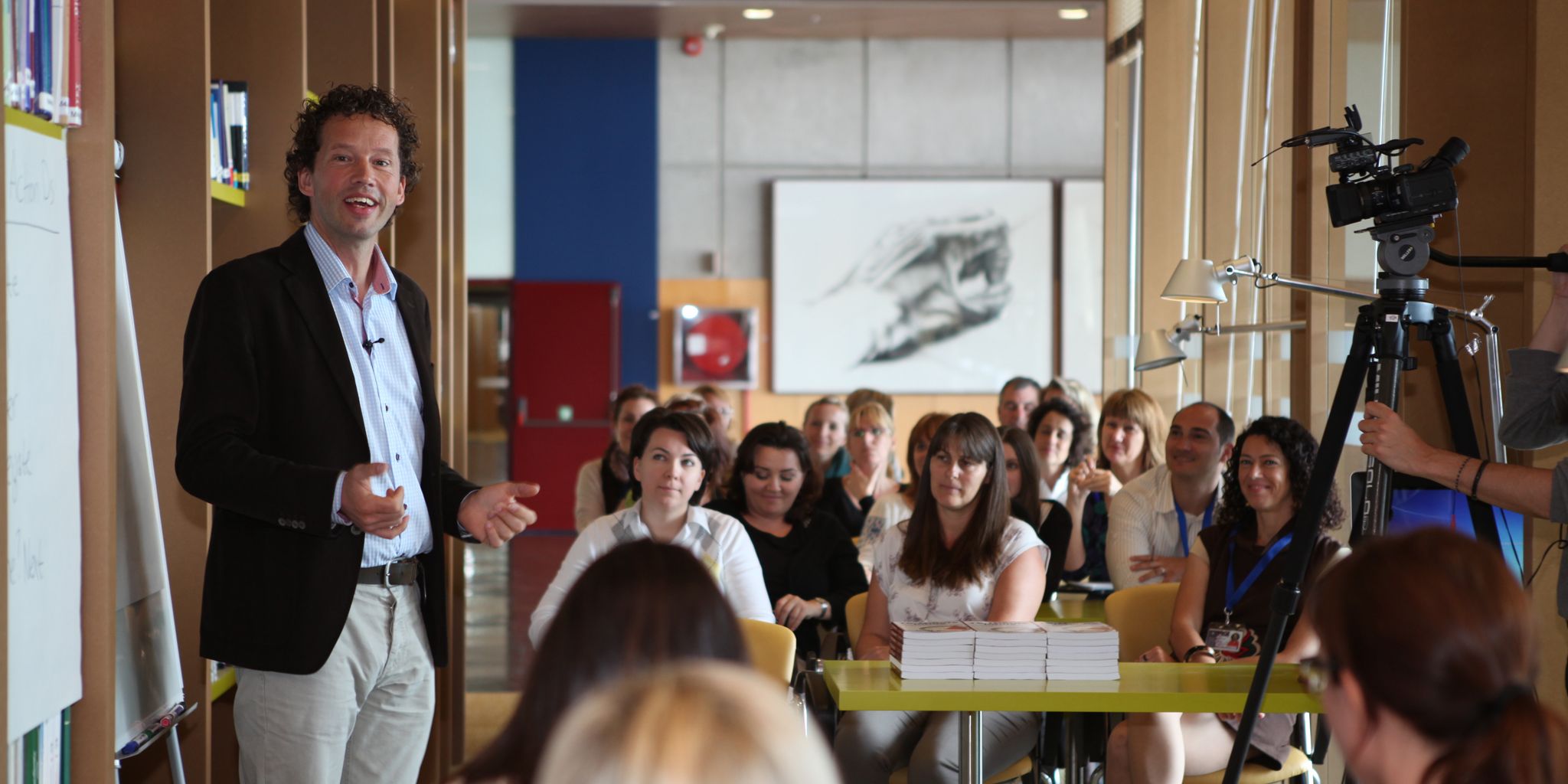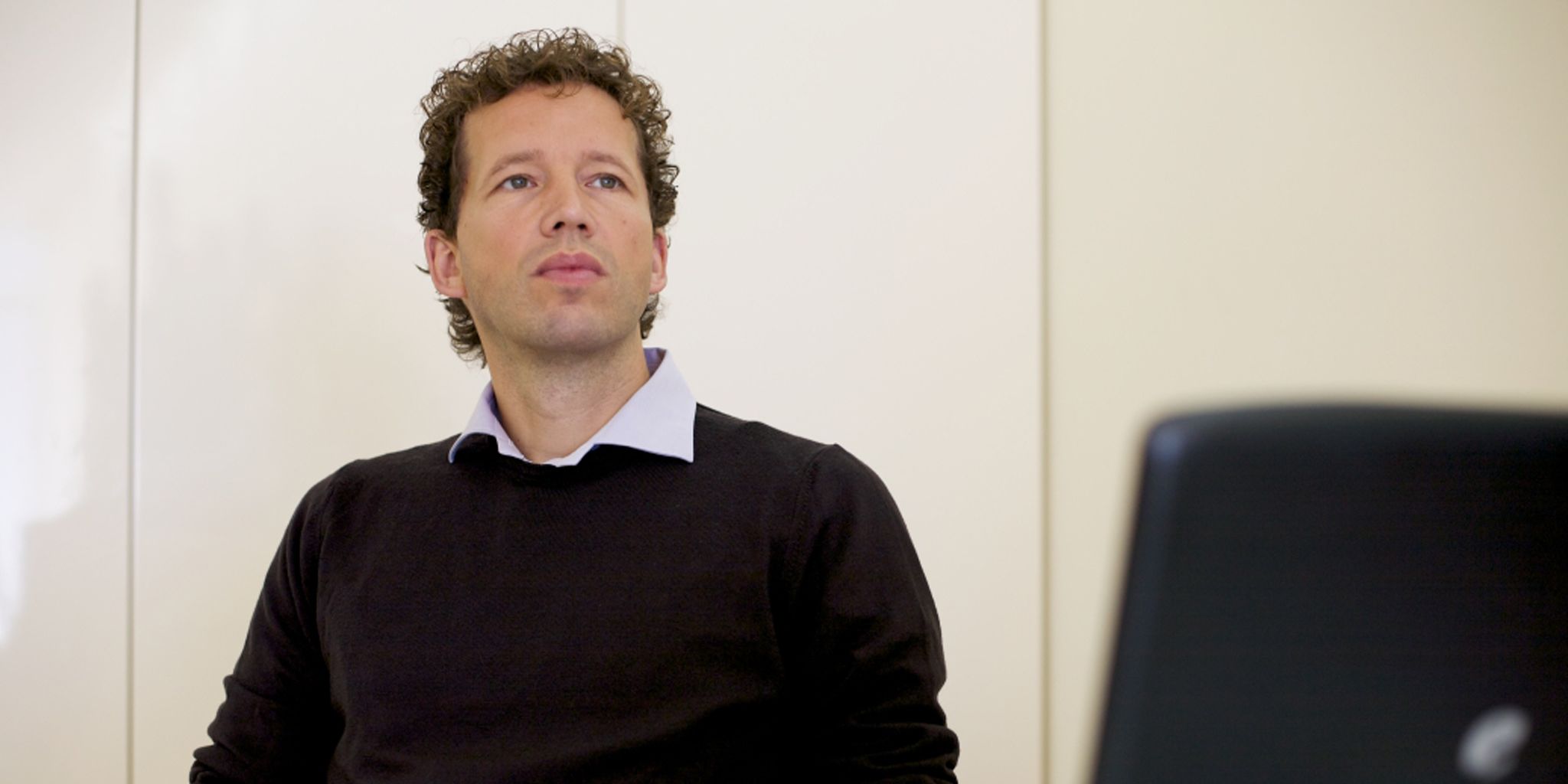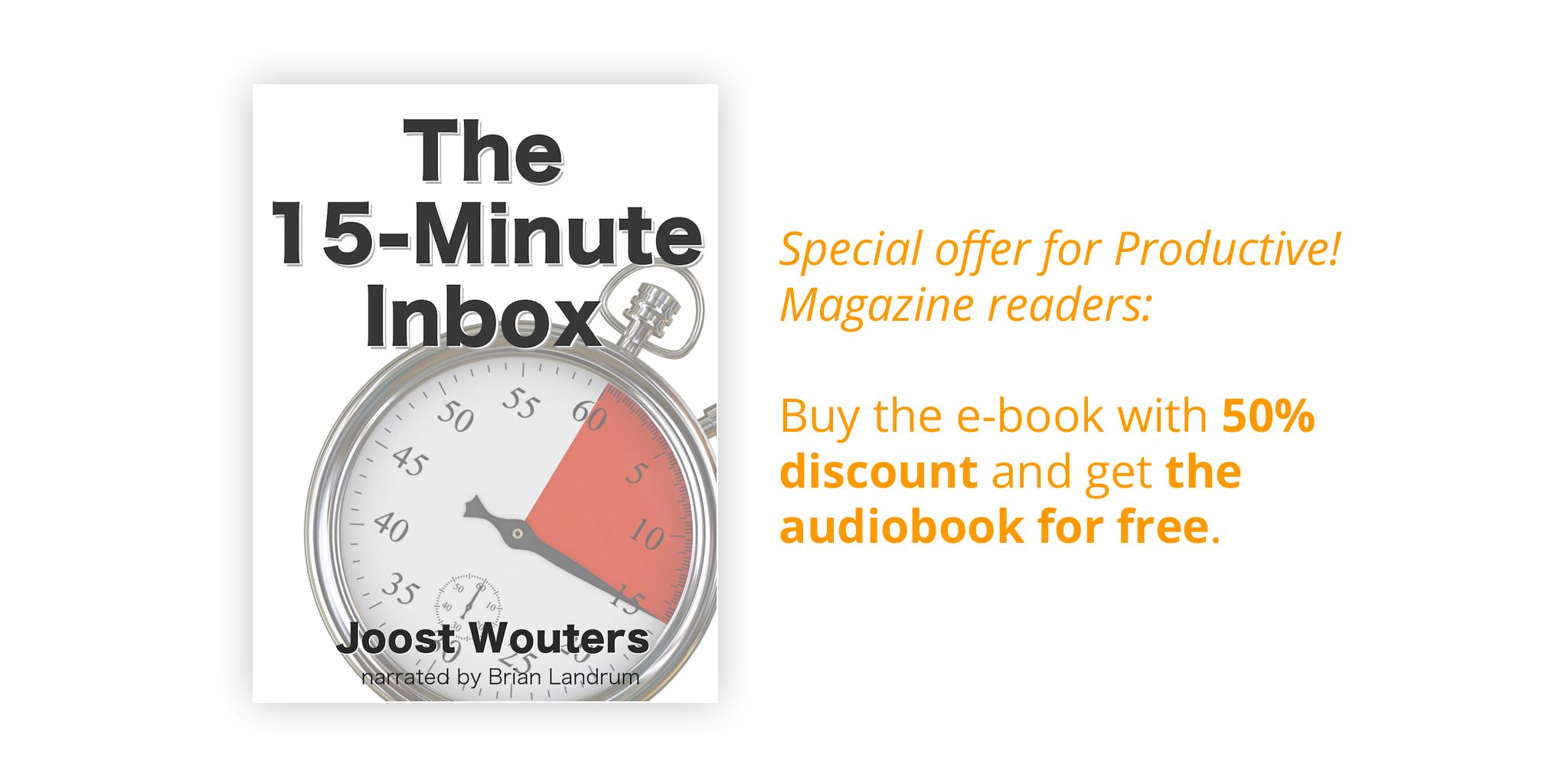Interview with Joost Wouters
Michael Sliwinski: Please tell us about yourself. What is your background?
Joost Wouters: After my studies as an engineer, I started working for two American companies, Procter & Gamble and Pepsi-Cola. And after about seven years, I started my own management consulting firm. It was about 12 years ago now. And that’s what we do right now. We work with multinational companies all over the world and try to help them with different leadership questions.
Michael: You also facilitate the leadership retreats and management meetings?
Joost: Yes, we have our office in Spain, and we invite the leadership teams from all over Europe. They come and spend a couple of days here, and we help them with building cohesive teams and at the same time help create strategic business plans.
Michael: So as you were coaching people, getting their teams in order, and watching the executives perform, you noticed something, right? There was this inbox thing …
Joost: Yes. While I have been working around in different offices and with different people, I noticed that right now people are spending so much time in their inbox. It is like they are leading their teams with e-mail. They write so many e-mails to each other that they can hardly find time to think or to be with their team.
Michael: So what’s the biggest problem? Why are people so glued to their e-mail?
Joost: I think the biggest problem with trying to manage everything with your e-mail is that you become stuck in a reactive mode. The big thing with e-mail is that everyone’s agendas are put in your mailbox. It is not your agenda. If you spend your whole day being reactive, you are like a firefighter. You are constantly reacting to things.
The people I work with get paid to be proactive business builders rather than reactive firefighters.
Michael: That’s why in my small company, as it is growing, I might have weeks of being reactive to everybody, and after the whole week, I simply didn’t know if I accomplished anything at all.
Joost: Exactly, exactly.
Michael: The week was gone and I was like, “Hmm … What did I actually do?”
Joost: I think that a lot of people, including myself some years ago, at the end of the day would close their laptop, and think, “I didn’t laze, I was busy, but I didn’t accomplish the things that I wanted.”
Michael: So what does it take to change the habits? What would be the first steps to stop being so reactive?
Joost: I think that the very first step is to realize why you are doing this. Many people just have their inbox because they have never thought about it and they have it as a given. To be aware of the fact that your inbox is your inbox and not your to-do box or storage box or one-day-when-I-have-time-I-will-do-this box already makes a big shift. So the first step is to be aware and to think about why you are doing this. And then, after that, you can get to actions and tips and tricks on how to empty the inbox. Start with the awareness and the consciousness.
Michael: I am the author of a project and task management tool, and some people were saying to me, “You know Michael, I don’t really need this kind of tool because I have my ‘to-do’s in my e-mail.” I was like, Aghhh! Please don’t!

Joost: Yeah, that’s a very inefficient way of managing the tasks.
Michael: Exactly. Because even though you put your e-mails nicely in order in your mailbox, there will be new e-mails coming all the time.
Joost: One of the things that makes you lose a lot of time is keeping all your e-mails in your inbox. You open an email when it comes in, and you leave it there, and the next day you open it again to see what was there, and so one message is read, then re-read, then re-re-read. And maybe that’s OK when there was just one email, but nowadays people receive hundreds of e-mails per day.
Michael: I’ve found a good name for that: it is the inbox infinity. Sometimes, I call it the inbox hell, but that is just me. :)
So having the inbox clean gives us the sense of accomplishment in a way — it is empty, there’s nothing there. But tell us, what are the most important things you have to do with each e-mail you get?
Joost: David Allen has described it before. First thing is to deal with your e-mail in batches. So it is not like you are working on your computer, the e-mail comes in, and you stop everything and start focusing on your e-mail. This is the most inefficient way of managing your e-mail! This is multitasking, and multitasking or trying to multitask is like a myth. It’s not possible.
So when you decide upon the moment when you want to start working with your e-mail, you need to have a system of what to do with each e-mail. And actually there are five things you can do with your email, and they all start with “d”:
Decide whether you need it or not. Is it relevant for my work? If not, you can delete it.
If you find it relevant and you can deal with it, just do so. If you can do something about it within two minutes (e.g., someone needs a telephone number or someone’s e-mail address, etc.), just produce an answer, send it and then delete the e-mail. Don’t leave it in your inbox.
You can defer it. Sometimes it requires an action and can take more than two minutes; there’s a good way to deal with these e-mails. You can put such e-mails in a separate folder with an action, so that you have all your important work waiting for you to do it.
Some emails require the action of someone else. In this case, you should delegate it.
When you are done, you can move on to the next email.
So that’s kind of a system. You are taking all the e-mails one by one. By doing that, you can really manage and process your inbox quickly.
Michael: OK. So this is the first part of dealing with your inbox quickly. This is a skill that you need to learn. I managed to learn it pretty easily and could really feel the sense of accomplishment when my inbox was empty. The problem I had, though, was connected with the e-mails I deferred and getting back to them later. What do I need to do to be able to deal with them?

Joost: I think it is good to have moments dedicated to dealing with your email during your work day. And for sure, it’s no good to plan it as the first thing to do in the morning. These are the most productive hours! The time between 9:00 a.m. and 11:00 a.m. is when my brain is still fresh, and the last thing you’d like to do then is to dive into other people’s worlds by opening your inbox. So set the e-mail time for just before lunch or before you leave. Those are times when you can do the reactive work like working on your e-mail. That’s a good way — to find the routines during the day and to have dedicated blocks of time for certain activities.
Michael: This is something I actually implemented. I have my “creative time” before noon when I don’t open my e-mail and do not know what is happening there.
Joost: Is it a challenge for you?
Michael: Yes, actually it is, especially now that I have more than one inbox as well as Facebook and other things. So I try not to log in before noon. And then, I do the batching: I deal with my inbox, and then I get back to work. I think my best moment for processing my inbox is after lunch. I’m full and I have the energy for dealing with other people’s agendas and problems.
Joost: Everyone needs to find his or her own time of day. The only quite general rule is that the morning, when you are the most creative, is not the best time for e-mail. Although it is also not good to deal with it just before going to sleep. Sometimes, before I go to sleep, while I set my alarm on my iPhone, I just can’t resist and I check my e-mail. Then I find this e-mail that I can’t deal with anyway. Then I go to bed, and it is still in my head. So if you can avoid it, you should.
Michael: I always say that, but I don’t always do that. I do find it is much healthier to focus on your challenges for the next day before going to sleep because then your brain thinks about that when you sleep. But when you deal with your e-mail before going to bed, your brain will only think of your e-mail when you sleep. It’s not a good idea!
So, you are doing the coaching, you have written a book, you are an expert in dealing with e-mail and team-building … What does your typical day look like?
Joost: Well, it differs a lot. Let’s take this week: Two days ago, there was a film crew coming here, and they were filming a video course of The 15-Minute Inbox. So that filled up the whole day. Next week, I am flying to Amsterdam where I have a two-day session with a couple of commercial teams. So now I need to prepare that using my phone, my email, etc. Then, when I come back, I need to write a report. Another thing that is a constant part of our business is to find new clients, which includes marketing and writing articles. I am also working on a new book.
Michael: And you do that in the morning?
Joost: Exactly! That’s when I have my inspiration. And so, I am really happy I don’t have, let’s say, a predictable day. My life is very, very different. The fact that I have my office in the Mediterranean (unfortunately you guys can’t see it, but it’s really nice) helps as well to do different things during the day :)
Michael: So if you have problems with dealing with your email, grab Joost Wouters’s book, The 15-minute inbox
Special offer for Productive! Mag. readers:
Click here: buy the e-book with 50% discount and get the audiobook for free.

Watch the interview with Joost:

